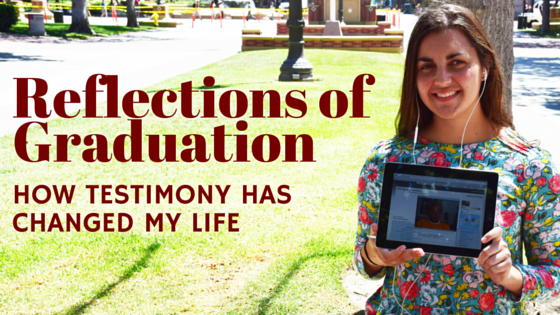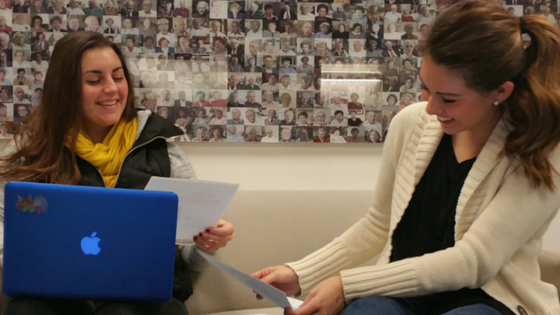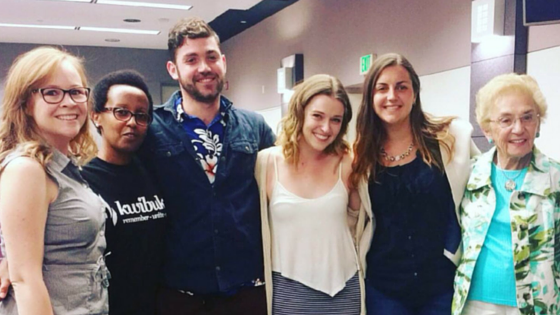Reflections Upon Graduation: How Testimony Has Changed My Life

Having just moved to Los Angeles from Brooklyn, New York, I started at USC as a sophomore International Relations major in the fall of 2013 and soon realized I needed a job. After a few months of scanning dissertations for hours on end for USC Libraries, I was eager to find a more stimulating job opportunity on campus.
Every day on my way to work, I passed by the offices of USC Shoah Foundation. While I knew that ‘Shoah’ referred to the European Holocaust, I was puzzled as to what went on there. One day, I finally mustered the courage to knock on the office door and found out. I soon interviewed with the head of Administration, Ari Zev, and we had the first of many great conversations. In fact, Ari has been a tremendous source of support and encouragement for me during college and a true role model. I soon started interning with the communications department led by Anne-Marie Stein, and under the direct supervision of Deanna Hendrick. Every day, I knew I could walk in, drop my backpack, warm up my lunch and chat with my ‘comms’ family. They have taught me so many important skills and have always encouraged me to take initiative in every project.

At the same time, I have found tremendous joy and inspiration in listening to testimony. Survivor testimony has made me laugh, smile and cry. I would find myself sharing anecdotes I had heard with family and friends. It’s fascinating that hearing someone share their most personal and painful experiences can inspire action, creativity and a profound sense of purpose for the viewer. In the last two years I have used testimony in various academic projects, presentations, and as a point of discussion in many of my classes at USC and abroad. As the president of DEFY, the USC Shoah Foundation Student Association, I was able to bring survivors and their stories to campus for different DEFY events.

In fact, there has been nothing I will cherish more than the relationships I’ve established with survivors, especially those whose testimony I had previously watched. I remember being brought to tears on day watching Dario Gabbai’s testimony. The very next day, I saw an elderly man with a strangely familiar face standing in the hallway. I walked towards him and took a good look: it was Dario. What struck me that moment and what still strikes me today when I think about it, is that he had the biggest smile on his face. I introduced myself and I told him about the coincidence of meeting him just hours after watching his testimony. He was so vibrant, talkative and sweet, and we chatted that day as if we had always known each other. However, I wondered: How can this man live with such a painful past? I realized that Dario, like most other survivors, keep going like anyone else does. However, a huge part of their positive outlook is derived from a profound gratitude for every new day of life and a personal mission to do their part so that what they lived through doesn’t happen again.
It has been an honor and an absolute pleasure to work for the USC Shoah Foundation, and I am eternally grateful to the staff for giving students like me an environment to do something fundamentally good for humanity. It’s easy to fall into a shallow view of life and to ignore the turmoil and suffering that doesn’t affect us. But it’s far more fulfilling to engage with it, understand it, and help those who endure it. I hope to carry the testimony I’ve watched and the sense of community I’ve experienced here with me in all my endeavors, never forgetting or ignoring those who suffer, and doing my part -- as insignificant as it may seem -- to make sure the horrors of the past aren’t repeated.